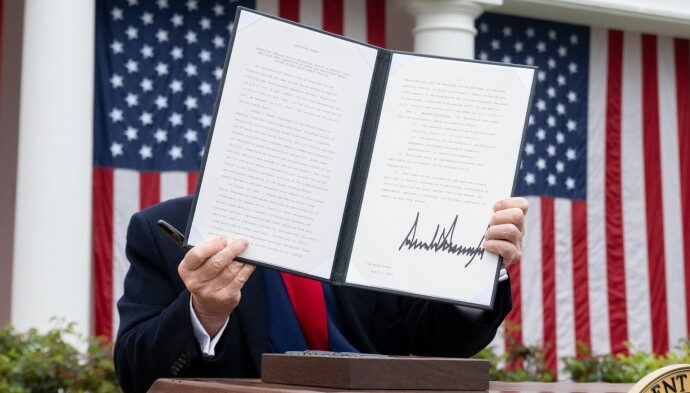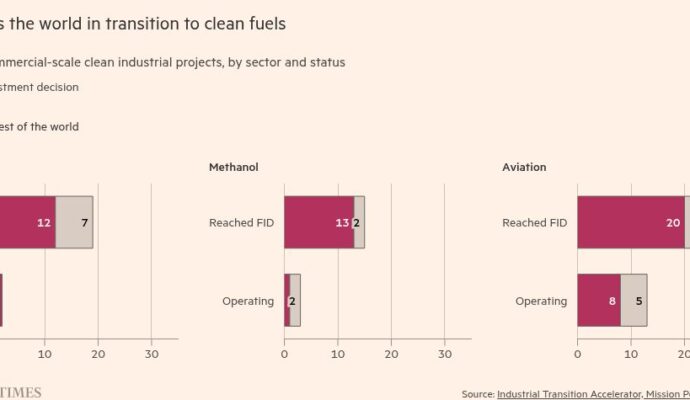
Stay informed with free updates
Simply sign up to the Chinese politics & policy myFT Digest — delivered directly to your inbox.
The writer is an associate professor at the University of Texas at Austin and the author of ‘Dictators and Their Secret Police’
Last week China kicked off its annual Global Public Security Cooperation Forum in Lianyungang. Most China watchers were focused on Beijing, where the Ministry of Defence was hosting the Xiangshan Forum. But China’s main push to rewrite the global security order was taking place in city further south.
The security forum is China’s flagship effort to build a new global architecture that centres not on militaries, but on police and internal security agencies. It might seem like a tall order for a highly authoritarian regime to line others up behind its vision of global police co-operation, but China’s efforts have got traction: Lianyungang has grown from a small, somewhat obscure, forum in 2022 to Beijing’s premier platform for security co-operation. This year saw about 2,000 people attend — larger than any other event China organises on global security issues. Indeed, the forum’s ambitions reach beyond the so-called axis of autocracies, positioning China as a model and a global security provider to developing countries. The opening speech this year by the minister of public security, Wang Xiaohong, touted China’s alternative to a western-led order.
Beijing’s white paper on national security, published in May, pivots from emphasising the pre-eminence of internal and regime security to lauding China for having some of the world’s lowest crime, homicide and terrorism rates. China attributes much of that success to police technology and surveillance — which has enough public support that Chinese citizens watching the news of Charlie Kirk’s murder in Utah this month favourably compared their own surveillance state to the slow and initially ineffective US search for his killer.
The 2024 event included a tour of nearby police training facilities to show off the achievements of what Beijing refers to as “Peaceful China”. Under Xi Jinping, China has begun referring to economic development and long-term social stability as the country’s “two miracles”. The security forum is the capstone in a much larger push by the Ministry of Public Security to present “Peaceful China” as an example for the world to follow.
One of its most prominent backers is the president of Interpol, Emirati interior ministry official Ahmed Naser Al-Raisi, who has thrown Interpol’s weight behind the forum even as reports suggest that Interpol has facilitated China’s transnational repression by repatriating fugitives, including Uyghur human rights advocates. Another endorsement came from the Solomon Islands, where Beijing is piloting a wholesale export of surveillance technology and a model of grassroots social control.
Global outreach by China’s internal security apparatus now matches or even exceeds the diplomacy carried out by the People’s Liberation Army. Chinese companies have also seized the opportunity to spread Chinese tools of internal security around the world by marketing surveillance technology and police equipment at the forum. Products on display included AI-enabled surveillance tools that can match individuals caught on police bodycams to databases of targeted individuals. Huawei advertises that its surveillance platforms leave criminals — or dissidents — “nowhere to hide”.
Showcasing China’s standards, tools and practices allows Beijing to normalise its surveillance state as a public security good and to present this as a response to public demand. It also positions China as the arbiter of what counts as security, and who provides it best. This year’s forum will release a “Global Public Security Index Report”, assessing the performance of 50 countries in public safety, counterterrorism, traffic safety and cyber security. Last year, the inaugural report found that China was the world’s safest country (scoring 86 out of 100); the US received a dismal 69.
In a world where China’s approach to “counterterrorism” has involved the forced re-education of large swaths of its Uyghur Muslim population, and where its security agencies are routinely discussed by western powers as persistent cyber security threats, the index could serve as a powerful alternative narrative.
These arguments appear to be working — not just with autocrats but from a broader set of leaders whose security views often align with Beijing’s. Many of their security problems are more likely to be fixed by high-tech police work than high-end fighter jets. If China can successfully make its case, Beijing’s bid to rewrite global security governance may displace the US — not by directly confronting it, but simply by creating alternatives that circumvent and surpass it.


